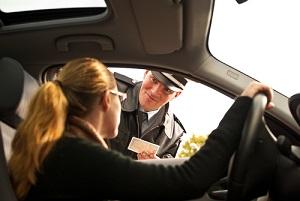No More Hard Time DUI License Suspension in Illinois
 Prior to 2016, if you failed or refused a roadside test for blood-alcohol content (BAC) in Illinois, your driving privileges would be automatically suspended for a period of time. The exact length of the suspension was based on your past history and whether you failed the test or refused to take—refusals resulted in longer suspensions. Such suspensions were—and still are—handed down by the Secretary of State’s office and are separate from the process of filing and prosecuting a driver for driving under the influence (DUI).
Prior to 2016, if you failed or refused a roadside test for blood-alcohol content (BAC) in Illinois, your driving privileges would be automatically suspended for a period of time. The exact length of the suspension was based on your past history and whether you failed the test or refused to take—refusals resulted in longer suspensions. Such suspensions were—and still are—handed down by the Secretary of State’s office and are separate from the process of filing and prosecuting a driver for driving under the influence (DUI).
In recent years, modern technology has led to the introduction of driving relief programs that incorporate the use ignition interlock devices to ensure that a driver is sober when getting behind the wheel. These programs also allowed more drivers to get back on the road legally, despite their ongoing suspension of full driving privileges. The law, however, required a suspended driver to serve at least 30 days of "hard time" for a first offense with no ability to drive whatsoever. Repeat offenders were subject to even longer periods of full suspension.
Evolving Attitudes
The hard time provision in the law has long been criticized as counterproductive. For most people, automobile transportation is a necessity of daily living, and those serving a hard time suspension still need to get to work and provide for their families. Many had no other option but to drive illegally, without the coverage of insurance, to maintain their livelihood. There was also the issue of certain prosecutors striking deals with defendants, allowing drivers to skip the suspension in exchange for large fines, which means that the suspensions were not even being applied equitably throughout the state.
Finally, anti-DUI experts and interest groups, including Mothers Against Drunk Driving (MADD), addressed the issue. MADD sent a letter to the Illinois legislature pointing out that, in light of the availability of ignition interlock devices, mandatory suspensions were found to be more dangerous than allowing drivers to get back on the road in a supervised manner. Late last year, Illinois lawmakers took action and removed the hard time provisions effective January 1, 2016, allowing drivers to apply for relief programs immediately.
Expected Impacts
With the elimination of hard time suspensions, state officials expect to find fewer drivers on the road illegally with a suspended license. They are also hopeful that the number of questionable plea deals with prosecutors will be reduced. Proponents also suggest that by including treatment requirements as part of the eligibility criteria for the relief programs, repeat offenses will also be less likely.
If you are facing a DUI-related license suspension or your license has been revoked due to a conviction, contact an experienced Elgin license reinstatement attorney today. Attorney Brian J. Mirandola has helped many clients get back on the road quickly and he is ready to help you do the same. Call 847-488-0889 for a free consultation.
Sources:
https://www.cyberdriveillinois.com/departments/administrative_hearings/2016legislation.pdf
http://www.chicagotribune.com/news/ct-dui-license-law-met-20151225-story.html








